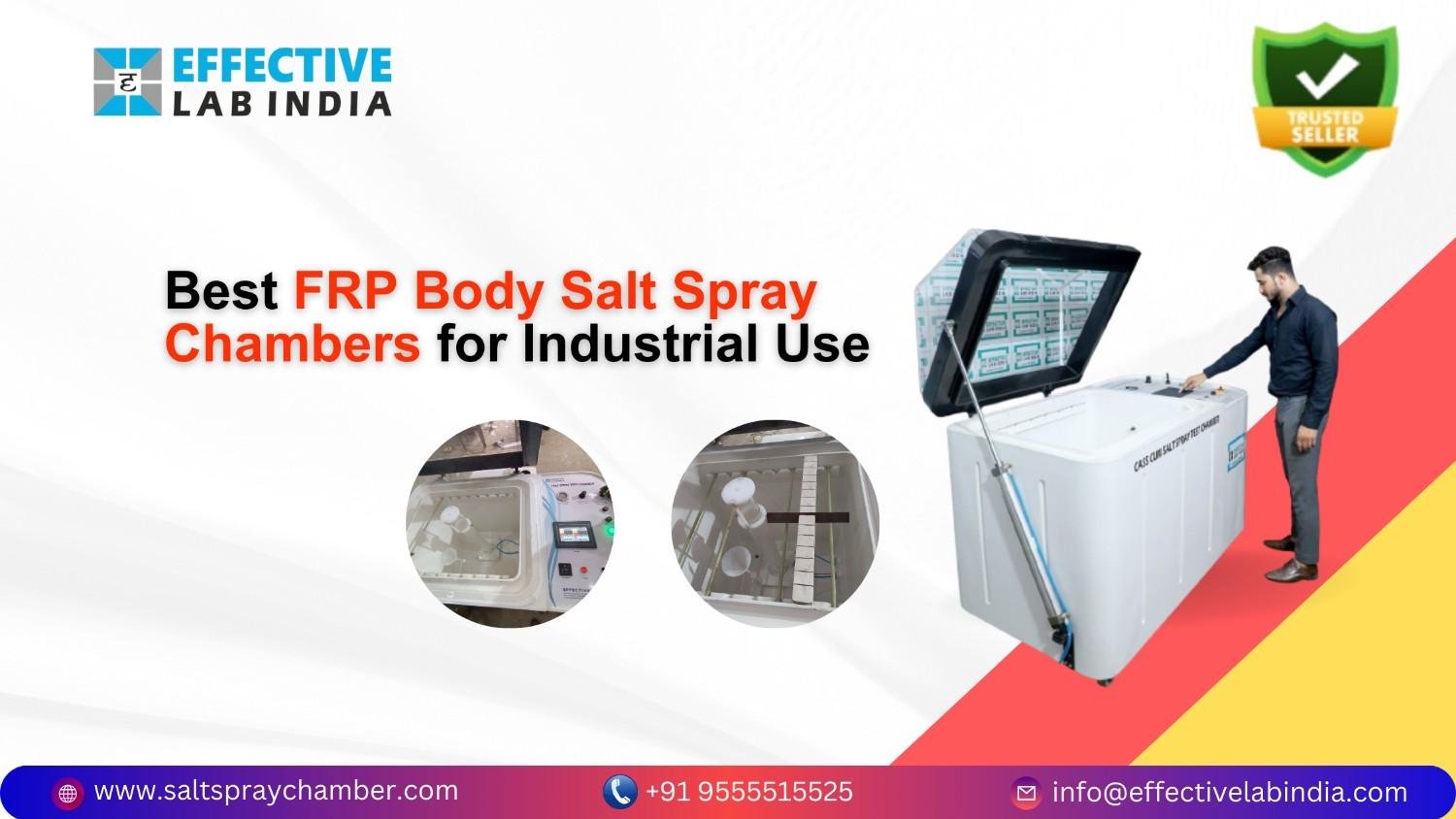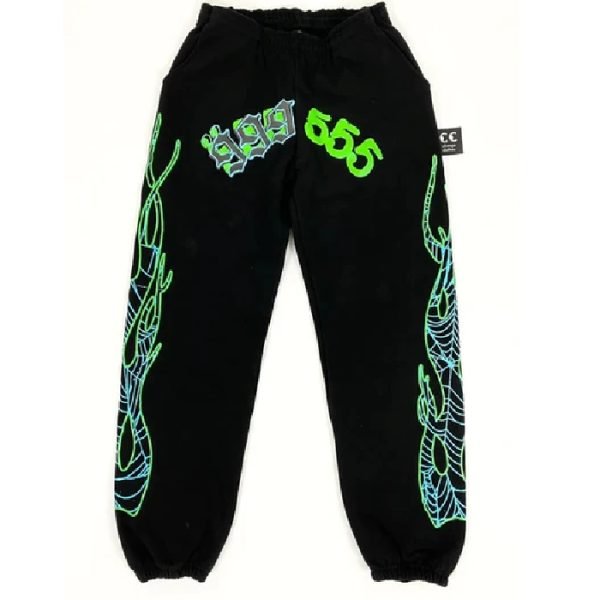Salt sprays are essential in industrial tools, materials, and metal alloy testing, especially for corrosion resistance. Manufacturers may use these structures to simulate harsh environments and evaluate the corrosion resistance of their products. The FRP body salt spray chamber is among this industry’s most often-used products. Let’s examine the unique features of these structures and the reasons they are the perfect place for industrial goods.
What is an FRP Body Salt Spray Chamber?
Fiber-reinforced plastic (FRP) is widely recognized for its remarkable strength-to-weight ratio, stiffness, and resistance to corrosion. Rotating salt spray with FRP bodies is used to expedite coating testing. These constructions evaluate the material’s ability to withstand extreme circumstances over time by simulating a humid, salty environment.
A Salt Spray Test Chamber is a specialized equipment used to evaluate the corrosion resistance of materials, coatings, or components under a controlled salt-laden environment. It simulates harsh, corrosive conditions by spraying a fine mist of saline solution (usually 5% sodium chloride) at specific temperatures and humidity levels. Widely used in industries like automotive, aerospace, and manufacturing, this test helps assess the durability of protective coatings, metals, and surface treatments, ensuring they meet quality and performance standards.
Key Features of FRP Body Salt Spray Chambers
- Resistance to corrosion
FRP is the perfect material for a salt spray test chamber since it is naturally resistant to corrosion. This keeps the actual structure from breaking down even after extended usage in a salty climate. - How robust and long-lasting it is
Body cycles made of FRP are long-lasting. They can endure years of heavy industrial use without losing their functionality or integrity. - Lightweight and Easy to Handle
Compared to steel structures, FRP salt spray test equipment is lighter, making them easier to transport and install without heavy equipment. - Energy Efficiency
Many FRP salt spray test equipment have been designed with energy efficiency in mind, reducing energy consumption without affecting performance. - Customizable Sizes and Configurations
These chambers vary in size, from small compact experimental units to large industrial units. It can also be customized to meet specific testing requirements.
Benefits of Using FRP Body Salt Spray Chambers in Industry
- Enhanced Product Testing
To make sure their manufacturer’s products can survive real-world circumstances, the automobile, aerospace, electronics, and marine sectors mostly rely on salt spray testing. Results from FRP constructions are dependable and constant. - Cost-Effective
FRP structures are more cost-effective in the long term due to their endurance and reduced maintenance requirements, even though the initial investment may be larger than that of a building constructed of other materials. - Compliance with International Standards
To ensure compliance globally, a large number of FRP salt spray structures are made to satisfy international testing standards including ASTM B117, ISO 9227, and JIS Z 2371. - Low Maintenance Requirements
Because FRP resists corrosion, it requires less upkeep and changes, which lowers maintenance expenses and downtime.
How to Choose the Right FRP Body Salt Spray Chamber
When selecting a salt spray chamber, consider the following factors:
- Testing Requirements: Determine the type of materials and coatings you’ll be testing.
- Chamber Size: Choose a size that accommodates your testing needs without wasting space or resources.
- Compliance Standards: Ensure the chamber meets the required testing standards for your industry.
- Other features: Look for things like an automatic control system, easy data recording, and good ventilation.
Selecting the appropriate Salt Spray Chamber Manufacturer has always been crucial. Effective Lab India is one of the top companies in the testing equipment industry, having been in business for more than 9 years.
Top Applications of FRP Body Salt Spray Chambers
FRP body salt spray structures are widely used in various industries, e.g.
- Vehicle: For corrosion resistance testing of vehicle parts, including underbody coatings.
- Space: Ensuring aircraft parts can withstand harsh environments at high altitudes.
- Marine: Evidence for the durability of materials exposed to salty sea conditions.
- Electronics: Coatings that protect electronics from moisture and salt are tested.
Conclusion
FRP Body Salt Spray Chambers are a great investment for businesses that value reliability and product longevity. These rapid corrosion testing constructions are excellent standards due to exceptional corrosion resistance, longevity, and compliance with international standards Whether you work in the automotive, aerospace, or marine industries, FRP construction can improve your testing methods and guarantee the longevity of your products can provide the answer.
Email us at info@effectivelabindia.com or call us at +91 9555515525 if you have any questions about the salt spray test chamber price. For your testing requirements, get the finest offers!
FAQs About Salt Spray Test Chamber
- What is the purpose of a salt spray test chamber?
The salt spray test chamber is used to evaluate the corrosion resistance of materials, coatings, or components by exposing them to a controlled salt-laden environment. It helps assess the durability of protective finishes and surface treatments. - How does a salt spray test chamber work?
The chamber sprays a fine mist of saline solution (typically 5% sodium chloride) at controlled temperatures and humidity levels to simulate corrosive conditions. Samples are exposed for a predetermined period to measure their resistance to corrosion. - What industries commonly use salt spray testing?
Salt spray testing is widely used in industries such as automotive, aerospace, marine, construction, and manufacturing to ensure materials and coatings meet corrosion resistance standards. - How long does a typical salt spray test last?
The test duration depends on the material and industry standards. It can range from a few hours to several weeks, with common durations being 24, 48, 96, or 240 hours. - What standards are used for salt spray testing?
Common standards include ASTM B117 (for neutral salt spray tests), ISO 9227, and JIS Z 2371. These guidelines specify test conditions and requirements for consistency and reliability.











Leave a Reply